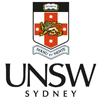Bachelor of Aviation (Flying)
UNSW
CRICOS provider number: 00098G TEQSA provider ID: PRV12055
Courses included
This course has been cancelled
About
Explore the science behind aviation, earn your flying licences and get ready to take on global opportunities within the aviation sector. This degree not only educates and trains pilots to the highest commercial standards, it also develops future industry leaders and managers. You’ll combine the study of theory with up to 200 hours of flight training and about 30 hours of simulator training.
For further information visit the UNSW Degree Finder or contact us on 1300 UNI NSW (1300 864 679).
Flight training costs: In addition to the student contribution amount, you’ll need to pay for the flight training costs portion of this degree. In 2025, the anticipated standard cost of flight training to obtain the minimum of a Commercial Pilot Licence (CLP) and Instrument Rating – Multi Engine Aeroplane is $150,000.
Additional flying costs are incurred depending on your choice of third year flying practicum and if more than the 200 flight hours are required to achieve proficiency in any aspect of the flight training. Students will be notified of their flight training costs in October of the year before they undertake the training.
ATAR Profile: Some UNSW offers were issued based on the UNSW Gateway Admission Pathway with a lower ATAR entry requirement. Refer to the Admissions Information for a complete ATAR profile by degree.
Areas of study
Aviation (Flying).
Career opportunities
Pilot for regional or major commercial airlines, training centres, charter flights; aerial surveyor.
Professional recognition
Commercial Pilots Licence (CPL) with a Multi Engine Command Instrument Rating and Air Transport Pilots Licence (Frozen).
Practical experience
Up to 200 hours of flight training and approximately 30 hours of simulator training in block release periods. The minimum standard of a commercial pilot's licence must be obtained for award of the degree; however, progression rates for most students will allow options such as Command Multi Engine Instrument Ratings, Grade 3 Instructor Rating, jet or turbine endorsements or line-oriented flight training.
Fees and charges
Refer to UNSW current fee information.
Essential requirements for admission
Direct application/Interview/Aptitude test: In addition to submitting a UAC application, students must submit a direct application to the School of Aviation and attend an interview.
Medical certificate: Prior to beginning flying training, students need to obtain an Australian Class 1 Civil Aviation Safety Authority medical certificate from a designated aviation medical examiner and be assessed for International Civil Aviation Organisation English requirements for pilots.
Admission criteria
Applicants with recent secondary education
Assumed knowledge: Mathematics Advanced.
Recommended studies: Physics.
Other applicants
Refer to UNSW general admission criteria.
Student profile
Visit the UNSW website.
Further information
View all details of this course on the UNSW website.
The academic content of all programs is subject to routine review.
ATAR profile
ATAR-based offers only (semester 1, 2024)
Use all ATAR profile data as a guide only; it provides a broad overview of the ATARs and selection ranks of previous Year 12 students admitted into that course. ATARs and selection ranks required for entry in 2025 may be different. If you are unsure about including a course among your preferences, contact the relevant institution.
- This ATAR profile table is in line with Commonwealth Government transparency requirements. It is based on offers to recent school leavers (ie completed Year 12 in the last 2 years) who were selected solely or partly on their ATAR. Note that some institutions further differentiate this information on their websites.
- The ATAR values exclude any adjustment factors.
- The selection ranks include the ATAR and any adjustment factors.
Abbreviations
– = data is not available.<5 = less than 5 ATAR-based offers were made.
N/A = no offers were made on the basis of ATAR.
NC = new course
NP = Not provided by institution
NR = No reportable profile
NS = No Semester 1 offers
NN = Unavailable (other)
NO = Entry on other criteria
Student profile
Course updates
Courses are added and cancelled throughout the admissions year and course details are subject to change. Check the UAC course search regularly.
Double degree options
Double degree options are available in a number of UNSW courses.
Honours at UNSW
Studying honours offers a chance to develop your research and professional skills guided by staff who are passionate about research and the development of new researchers. Honours is an integral component of many UNSW courses or may be offered as an additional year of study to meritorious students.
